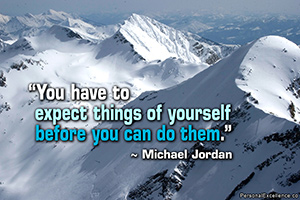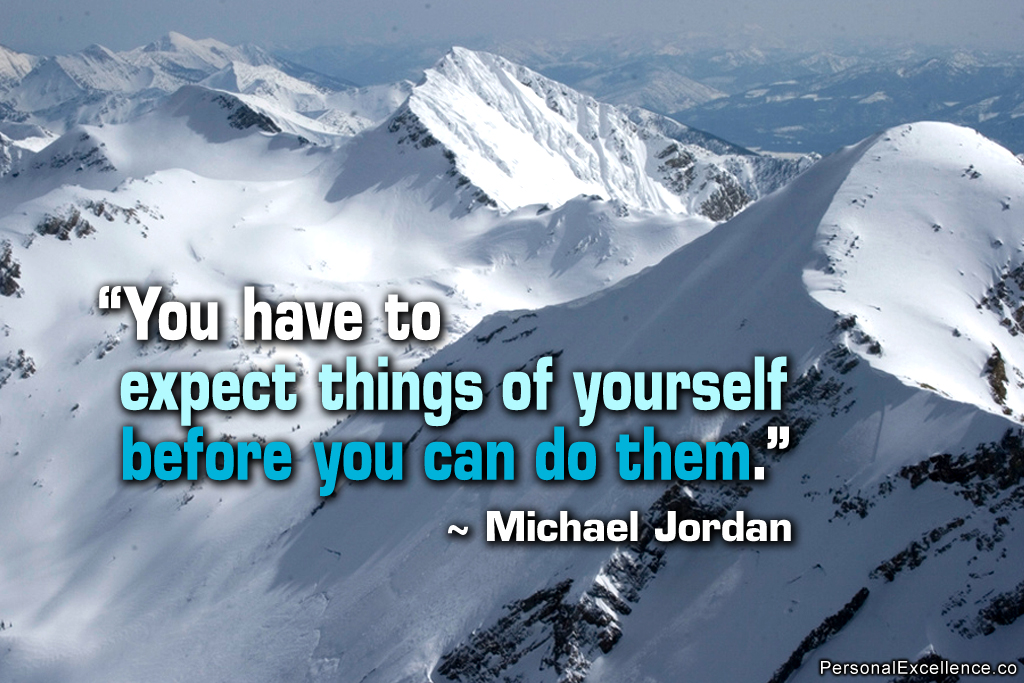
(Image: visionaryft)
What do you do whenever you read a self-help article?
- Do you reflect and see how it applies to you?
- Do you write down your key action steps and work on them?
- Or do you just click the “x” button and surf away, forgetting what you have just read?
Self-help junkies is a term that refers to people who indulge in self-help without action. In general self-help junkies can be classified into three groups.
The first group is the Observers. Observers read, acknowledge the concepts, and are even able to analyze and critique them. But they don’t take action. They seem to read self-help for sport, as a leisurely thing. They read blogs and wonder why there are no new articles, but they rarely or never apply the ideas in the articles.
The second group is the Addicts. Addicts are fervent in engaging in self-help. They read a lot of self-help books and sites. They are very well-versed in self-help concepts. They attend one seminar after another, sometimes within weeks. They have probably attended more seminars than the average person will in their lifetime. During the seminars, they immerse themselves and get a motivational high, which leads to some positive change. However, when the excitement tapers, the change disappears too, and they are back where they started. Lost, they then move to the next self-help resource, looking for that boost.
The third group is the Desperate Seekers. They turn to self-help, often with a sense of anxiety, hoping for a solution to their problem. Yet when an answer is given, they reject it. They then seek out a different resource, anxiously clamoring for an answer. Again, the same thing happens — they reject what is given, continuing to look for another answer. It feels that they are looking for a magic bullet, a miracle solution that will take very little effort and create magical results overnight.
Do you know anyone in the three groups? Or are you perhaps in one of them yourself?
Dangers of Being a Self-Help Junkie
1) Imagining growth when there is none
The first danger is that it results in self-imagined growth. When you’re reading all this material, you may think that you are experiencing massive growth. However, if you don’t apply the ideas, it becomes self-imagined growth. Because at the end of the day, what matters is whether you are using the concepts to better your life, as opposed to just creating a feel-good factor.
An immediate way to tell is to examine your life. Are you still in a job you dislike from 1 month, 3 months, 6 months, or 1 year ago? Are you still weighed down by something from the past? Are you still in the exact same amount of debt? Are you still searching for that next big thing? Are you still anguished by the same people, still in the same toxic relationships from the past?
If so, perhaps it’s time to ask yourself why. Are you applying the concepts that you’re learning? Or are you just reading and not applying?
2) Deferring your life
I once met someone who attended many financial seminars. These included real estate, wealth creation, investment, etc. His goal was to be rich. The seminars weren’t cheap – they were in the range of thousands each, and during the seminars the speakers would up-sell coaching packages too, using persuasive and at times questionable sales techniques.
Eventually he spent five-digit sums on said courses and seminars. Not only did he not earn anything, but he was in debt because he had to borrow money to attend the courses.
When I talked to him, it felt like he was expecting his big break to come from the outside world. For one, he was still looking to attend such seminars and make it big based on the seminar’s content. Two, he kept self-victimizing rather than take ownership of his situation, something he summed up as due to “lack of luck.” Three, it felt that he was looking for someone to show him the magic path to financial abundance, as opposed to taking action himself.
While I tried to tell him that he didn’t need anymore courses or financial know-how, and the answers to his problems aren’t going to be found in such seminars (not to mention many wealth seminars today are basically scams masqueraded as credible events), I wasn’t sure if he heard me. I’m not sure what happened to him afterward, but I wish him all the best.
The example above is extreme, but the same pattern can be found in many self-help junkies. They approach self-help with the mentality that it’ll solve their problems.
Self-help is self-guided improvement. It’s a tool to help you tackle your situations, but until you take ownership of your life and take action to overcome your blocks or problems, they won’t disappear.
This brings me to my second point. If you’re looking for magic answers in self-help, they aren’t there. Learn what you can, then form your conclusion. Then work on creating your best life. Keep learning and changing your plan along the way. But don’t defer your life just to find a magic answer.
3) Not taking real action on your problems
For self-help junkies, reading about self-help is a way to feel like they’re working on their lives. Self-help has become a convenient procrastination outlet. Don’t like how life is turning out? Let’s borrow a bunch of self-help books on the art of positive thinking, and read and feel good about ourselves instead of taking action on the problem. Unhappy with a negative career or relationship? Let’s focus on the importance of appreciation and happiness, and ignore the fact that the biggest way to be happy is to address the problem (the career or the relationship) itself.
Does it make you feel better? Temporarily. Does it change the situation? No, not at all.
What To Do Then?
Step 1: Use Self-Help Constructively
There is a lot of great knowledge in self-help. As a trainer myself, many of my course participants have completely changed their lives after taking my courses. A large part of this is because they are ready to learn and take action. I continue to upgrade myself and read new things every day.
Be clear about why you’re reading self-help. Is it to enrich yourself? To be more informed? Because you’re curious? To get an answer to a question? Make sure you are not pursuing self-help for leisure, to get motivational highs, or for a magic bullet solution. That would be self-defeating.
Step 2: Engage Only If It Has Value
As I mentioned in my How To Say No To Others guide, your time is valuable. Engage in something only if it has value. For each self-help book or course, ask yourself these 4 questions:
- Is this relevant to me?
- Is it something I need to know now?
- Is there something new for me to learn?
- Do the benefits potentially outweigh the costs?
If your answer is “yes” to all 4 questions, then you should go ahead with it.
Personally I’ve only attended one self-help workshops before and have never been to an actual self-help seminar, save for Never Work Again which was more a pitch fest than a real content seminar. I have only read a handful of mainstream self-help books (Living the 80/20 Way, The Dip, The 7 Habits of Highly Effective People, Getting Things Done, etc.). From these, I’ve learned enough concepts to last me a long time. I feel that the other self-help books out there are full of value, just that there’s no reason for me to check them out yet. I have also found that much of self-help in the mainstream culture covers the same (important) principles, and once you’ve seen one or two, you’ve seen it all, unless it’s in a different category (Positive Thinking vs. Finance vs. Entrepreneurship vs. Productivity etc.). If so, it’s usually one or two new ideas integrated with the same core principles.
What I do is a lot of self-reflection, personal experimentation, and action taking. I extract my best lessons and share them here at Personal Excellence with all of you. And the cycle continues. I only read when I have to, and when I do it’s a very fast process — I look for what I need (the 80/20), extract my lessons, and then take action.
Interestingly, despite not being exposed to much of the mainstream self-help (e.g. stuff by Tony Robbins, Brian Tracy, Robin Sharma, etc.), I’ve been told that many things that I teach today are also recommended by the gurus in their own teachings, packaged in a different way but in essence extolling same principles. To be honest I’m not surprised, as I believe we’re all on the path towards the truth. It’s a very positive sign — if different people from different walks of life are coming to the similar/same conclusions, that means we’re getting somewhere close, and it’s a matter of time before we converge to the same path.
Step 3: Face Yourself
If you have been seeking answers, ask yourself if it’s really answers you are seeking or you’re trying to avoid something. If you keep engaging in self-help to get a “boost,” ask yourself if you’re using this to cover up a lack (of real results and growth) in your life. If you’re a seminar junkie, going from one self-help seminar to another, perhaps the question is to ask yourself what exactly you’re looking for. If you haven’t already gotten a resolution in the first few events you’ve been to, chances are you won’t in the next few events, unless the trainer is using a totally different approach or your attitude changes.
Is there something you’re fearing? Something you’re trying to avoid? Stop looking outside and start looking inside. The answers you seek are inside you. The more you try to avoid your fear or problem, the more it will be right there before you.
Step 4: Apply What You Read
At Personal Excellence, I spend a lot of time writing my articles. I want you to be the best that you can be. I want you to have your best career, to meet your dream life partner, to be financially abundant, to be at the top of your health and fitness, to be at the peak of your game, and to live your most meaningful life ever. What I can do is to spend my days to write quality articles and share my best lessons to you. And from there, it’s up to you to take the relevant lessons and apply them to achieve the results you want.
There are over 700 content rich articles at PE (as of 2017), with some of the best material you can ever get on personal development. These articles include content to discover your life’s purpose, to be more productive and organized, to cultivate positive habits, to wake up early, to become a more confident person, to move on from relationships, to overcome disappointment, among many other topics.
Almost every day, I get a few messages from readers who have created positive changes and are living the life they dreamed of, because they consciously read and applied what they have read this site or elsewhere. Some changes from PE readers:
- Theodor from Norway has finally quit his passionless job recently to pursue his true path in life.
- Kwamise from US is now working on his vision to have a performing arts academy.
- Allison from Panama has become a more confident and optimistic lady.
- Thalissa from Tucson gained closure on a relationship that left her feeling sick and worthless.
- Huiting from Singapore is now pursuing her passion as a travel writer and is taking a travel writing course to equip herself with the right skills.
- Matt from Iowa is taking control of his health and fitness regime, and is living the healthy life he’s always wanted.
- Tatt from Thailand is working on his training business to help teenagers and young adults discover their true selves.
That and many more. All of them are readers of the blog, some long-time readers, and some of whom recently found the blog. All of them may have started out as passive readers, but at some point they realized it was time to take action. They started to make little changes with every article they read, to where they are today. Simply reading and seriously applying the lessons from a fraction of the posts here is enough to create a huge change in your life.
It doesn’t take long for positive results to manifest. I took action to live the life of my dreams two years ago (it’s 2010 as I’m writing this). Within a year my business was up and brought in steady income. Today, two years later, I’m running a business that’s my passion, doing what I love, living true to my life’s purpose and feeling more rewarded than I ever have. The seeds that I sowed two years ago are now little seedlings, strong and ready to grow into trees. There’s so much in store for the future and it’s exciting to see what every day brings.
What you want can be yours too. But they can’t happen if you don’t take action. Identify the areas of improvement in your life. What is the biggest goal in your life now? How do you plan to achieve it?
As you read, always reflect what you’re reading to your situation. Ask these questions:
- How can this information apply to me?
- What have I learned from this?
- How can I apply this to my life? What can I do differently from hereon?
Moving Forward
Some of you may be ready to work on your personal growth but with so many scattered ideas, you don’t know where to start. I have created a 30-day program, Live a Better Life in 30 Days, which consists of my best exercises and tools to live a better life in just 30 days. One task a day, each tackling an area of your life. Many readers have seen transformational changes after just a week. Read more here: Live a Better Life in 30 Days
Personal growth doesn’t have to be rocket science. Taking small steps now can create immense change after a while. Read:









 Thanks for reading. If you like my free articles, join my private email list and get my latest updates and articles sent right to your inbox.
Thanks for reading. If you like my free articles, join my private email list and get my latest updates and articles sent right to your inbox.